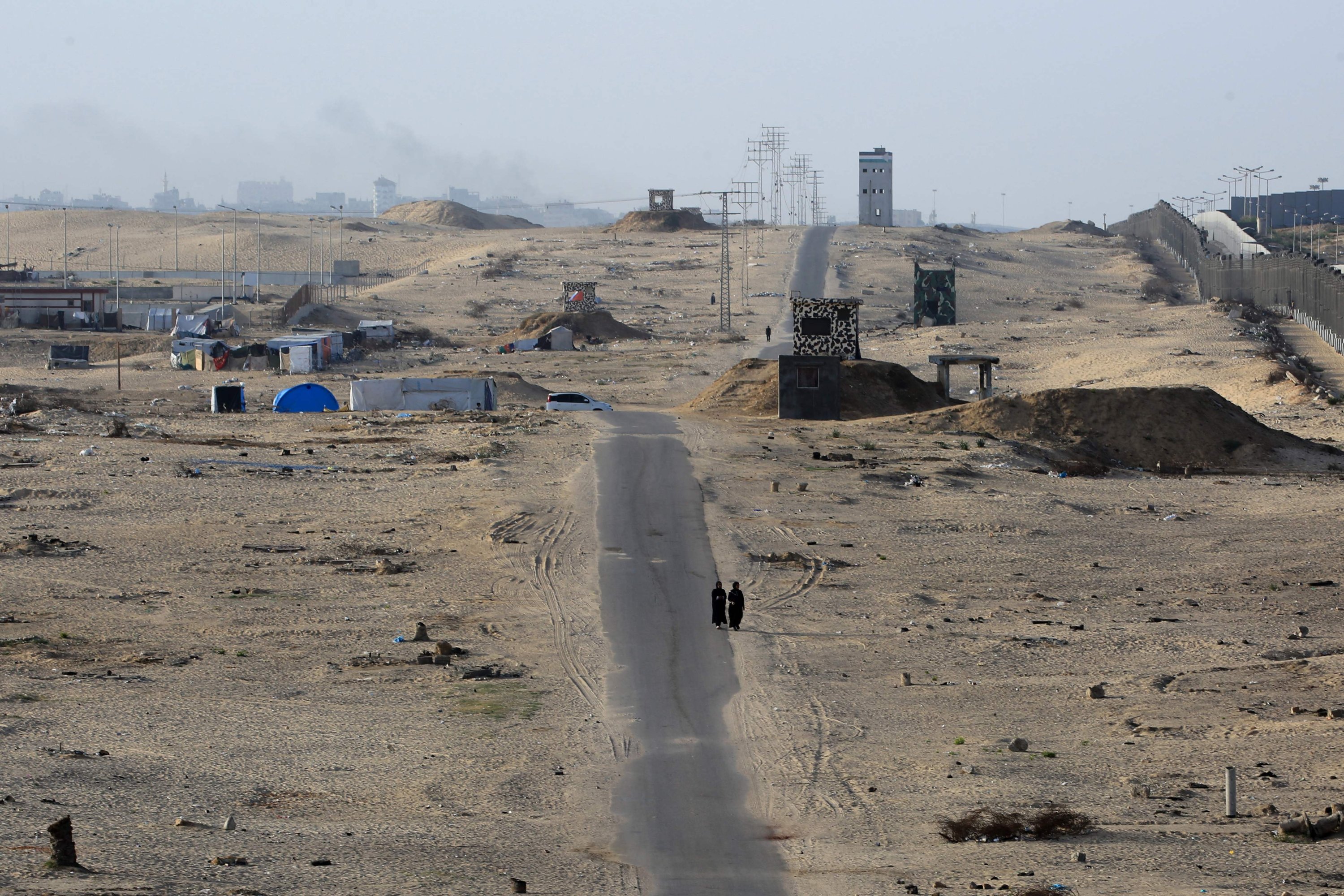© Turkuvaz Haberleşme ve Yayıncılık 2026
Israeli forces intensified military strikes on Gaza on Friday, with heavy fighting reported in Jabalia in the north and tanks advancing further into Rafah in the south, according to residents and medics.
Medics said at least five Palestinians were killed when houses were hit in Jabalia and more were believed to be trapped under rubble, but that the area could not be reached due to the intensity of the bombardment.
In the southern city of Rafah bordering Egypt, where an escalating Israeli assault has sent hundreds of thousands of people fleeing from what was one of the few remaining places of refuge, residents reported explosions and smoke rising in the distance as tanks advanced further into the east.
Judges at the U.N.'s top court were due to rule later in the day on South Africa's request to order Israel to halt its Rafah offensive and withdraw from Gaza, in part of a wider case accusing Israel of genocide.
Israel launched its war on Gaza following a Hamas-led incursion on southern Israel on Oct. 7 killed around 1,200 people and saw more than 250 hostages seized, according to Israeli tallies.
Since then, Israel's military assault has killed more than 35,000 people, according to Gaza health authorities.
The Israeli military said it had recovered the bodies of three hostages taken into Gaza after they were killed on Oct. 7.
It said the bodies of Hanan Yablonka, Michel Nisenbaum and Orion Hernandez Radoux were recovered overnight in a joint operation by the army and the intelligence services in Jabalia.
Israel says its twin goals in Gaza are bringing back the remaining hostages and destroying Hamas.
"We will not stop fighting for their freedom," said military spokesperson Rear Adm. Daniel Hagari in a televised statement announcing the recovery of the three bodies. "Every decent country would do the same."

Netanyahu is also facing rising domestic pressure to secure the release of captives still held by Palestinian militants in Gaza. He would soon address the U.S. Congress, House Speaker Mike Johnson announced Thursday.
The United States, a steadfast ally of Israel during the war, has seen President Joe Biden increasingly push Netanyahu to reduce the violence, threatening to halt arms supplies amid a rising civilian death toll.
An AFP photographer saw a group of Israeli activists rallying outside the U.S. consulate in Jerusalem, carrying banners that call to "Free Gaza" and "Stop arming genocide", before being removed by security forces.
Cease-fire talks involving U.S., Egyptian and Qatari mediators ended shortly after Israel launched the Rafah operation though Netanyahu's office this week said the war cabinet had asked the Israeli delegation "to continue negotiations for the return of the hostages."
CIA chief Bill Burns is expected to hold talks in Paris with Israeli representatives on Friday or Saturday in a bid to relaunch negotiations, a Western source close to the issue said.
Simultaneous Israeli assaults on the northern and southern edges of Gaza this month have caused a new exodus of hundreds of thousands of Palestinians fleeing their homes, and have cut off the main access routes for aid, raising the risk of famine.
Israel had said its forces cleared Jabalia, the largest of Gaza's eight historic refugee camps, months earlier in the war. But it returned there this month saying it needed to prevent Palestinian resistance from regrouping and the area has seen intense fighting in recent weeks.
Residents said Friday tanks had destroyed the local market and bulldozers continued to raze shops and property in Jabalia's narrow alleys. Hamas said its members had engaged three tanks there.
Tanks also advanced close to the nearby Kamal Adwan Hospital, where medics said Israeli fire had caused the suspension of operations at the last functioning medical facility in the northern Gaza Strip.
Gaza's Interior Ministry said Thursday that senior Hamas commander Diaa al-Din al-Sharafa had been killed by an Israeli strike in central Gaza, in a rare acknowledgment from Hamas of a high-ranking fatality.
